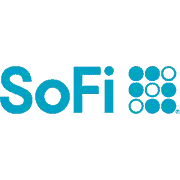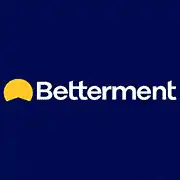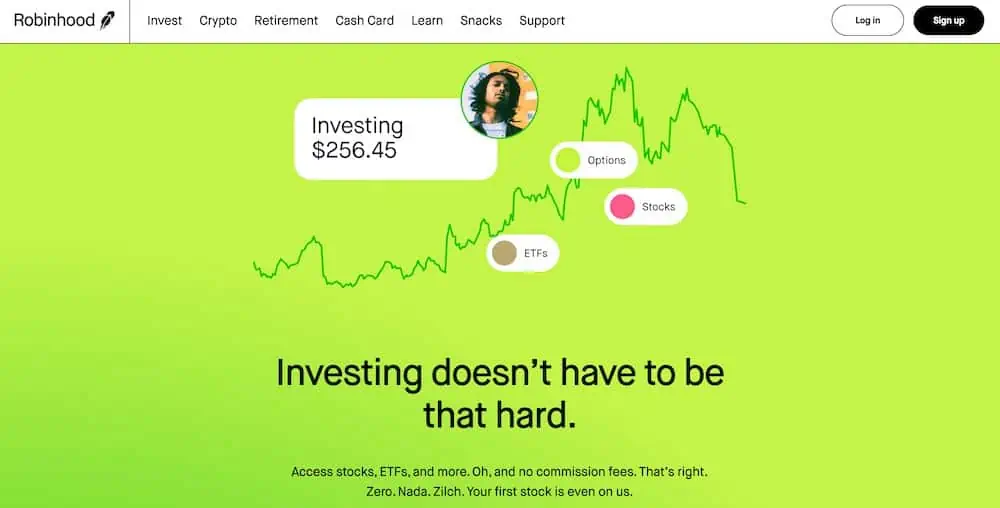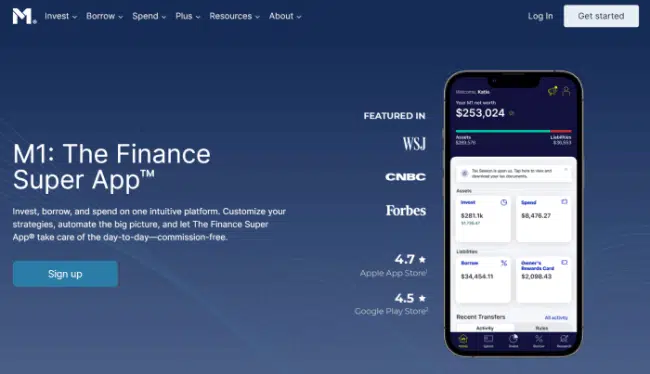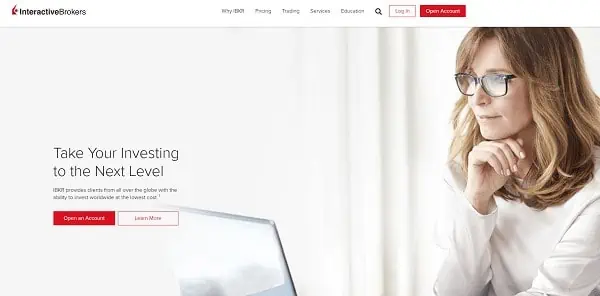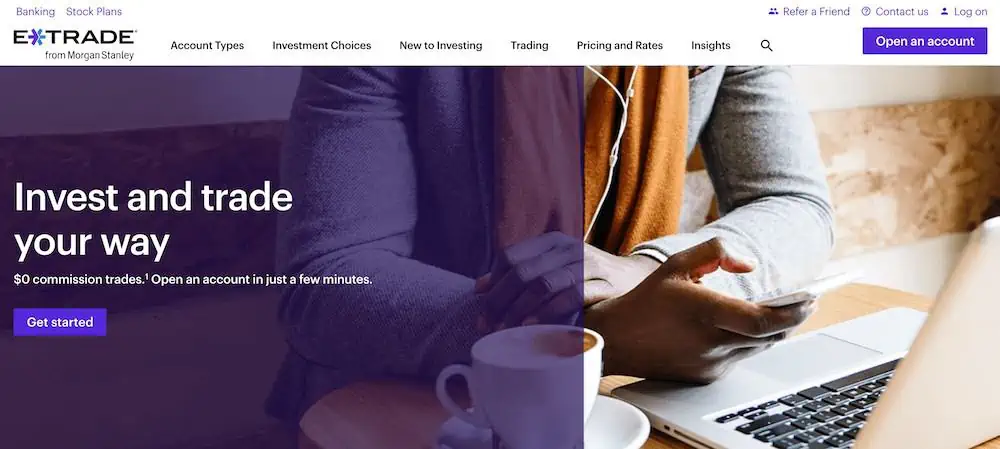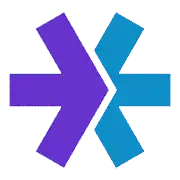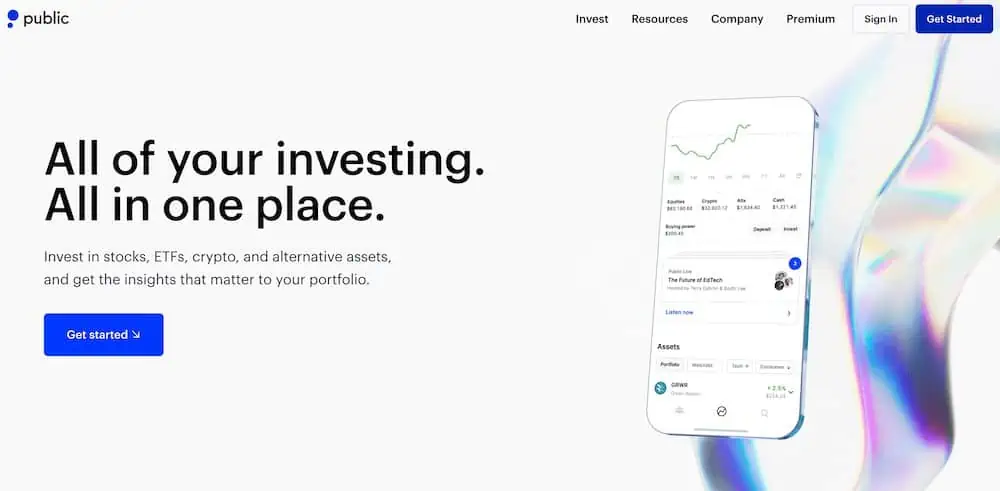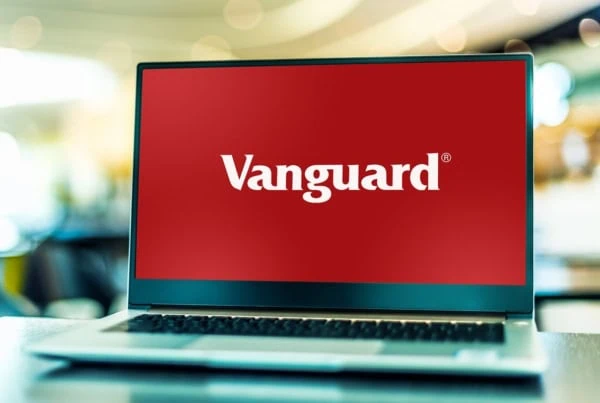Today’s best online stock brokers for beginners are a do-it-yourself investor’s dream. Most go well beyond just allowing you to buy and sell stocks—they’re research portals, trade-idea generators, and access points for a wide array of investments that go well beyond stocks.
And you can do all of that not just from a computer, but typically, even your phone.
If you’re an investor, consider yourself lucky to be putting your money to work in the 21st century—it has never been easier. Hundreds of years ago, if you were among the precious few with wealth, investors would have to personally meet up with brokers in houses or coffeeshops, and some people would literally post on bulletin boards if they had to sell their shares.
Even as recently as a few decades ago, despite all their advancements, investing still required a call to your broker, and it was a relatively high-cost affair involving expensive commissions that were extremely prohibitive to middle- and lower-income Americans.
But over time, commissions eventually came down—a process that accelerated thanks to the internet and the rise of online/discount brokerage firms. Fast-forward to today, and if you want to start investing—well, all you need is five or 10 bucks and a phone to plug yourself into any of the best brokerage accounts for beginners.
Better still: You have a variety of choices, which is good, because different beginners might want different things. Some want a set-it-and-forget-it account with automated investing so they can plow their money into a few index funds that match their goals. Others want access to as many types of investments as possible, as well as all the learning tools they’ll need to master each one of them. And still others are hands-on learners that just want quick-and-easy access to the stock market sandbox—they’ll figure out the rest from there.
Today, we’re going to evaluate the best online stock brokers for beginners with all of these various needs in mind. Because while there is no one-size-fits-all-solution, the best investing apps are better than the rest at catering to certain sets of needs. Among our considerations: breadth of offered investments (stocks, ETFs, mutual funds, etc.), ease of use, robo-investing and other automated investing features, educational resources, intangible features (say, social aspects), and, of course, cost.
Best Brokerage Accounts for Beginners—Our Top Picks
|
Primary Rating:
4.5
|
Primary Rating:
4.4
|
Primary Rating:
3.7
|
|
No commissions on stock and ETF trades. Robinhood Gold: Free 30-day trial, then $5/mo.
|
No commissions on stock and ETF trades.
|
$4/mo., or 0.25%/yr. AUM fee*. Premium: Additional 0.15% annual fee.**
|
The Top Online Stock Brokers for Beginners
| App | Apple App Store Rating / Best For | Fees | Promotions |
|---|---|---|---|
 Robinhood Robinhood | ☆ 4.2 / 5 Beginners | Commission-free trades | Free stock with signup and linked bank account ($5-$200 value) |
 Betterment Betterment | ☆ 4.7 / 5 Passive investors seeking tax-loss harvesting capabilities | $4/mo., but changes to 0.25% annual AUM fee if you set up recurring monthly deposits totaling $250, or reach a balance of at least $20,000 across all Betterment accounts. Premium: 0.65% annual AUM fee | None |
 Vanguard Vanguard | ☆ 4.7 / 5 Vanguard fund investors | Commission-free trades | None |
 Firstrade Firstrade | ☆ 4.6 / 5 Beginner investors and traders | Commission-free trades | Free account bonus commensurate with contributed funds |
 M1 Finance M1 Finance | ☆ 4.7 / 5 Passive investors | Basic: Commission-free trades. M1 Plus: $10/mo. or $95/yr. | None |
 Interactive Brokers Interactive Brokers | ☆ 4.0 / 5 Day traders | Commission-free trades | None |
 eTrade eTrade | ☆ 4.6 / 5 Intermediate investors and traders | Commission-free trades | Free account bonus commensurate with contributed funds |
 Schwab Schwab | ☆ 4.5 / 5 Investors and traders of all experience levels | Commission-free trades | Free account bonus commensurate with contributed funds |
 Public.com Public.com | ☆ 4.7 / 5 Investors seeking traditional and alternative investments | Basic: Commission-free trades. Premium: $10/mo. | Free account bonus commensurate with transferred funds |
| *Apple App Store Rating as of May 1, 2024 | |||
A quick note about these stock brokers for beginners. In any of our review articles, we only list products that meet certain quality thresholds—so if a product is listed, regardless of how it ranks, we still believe it’s worth using.
However, this group of products stands out in how close they are in quality to one another. In some product reviews, there can be a stark difference between the best-ranked product and the worst. But in reviewing the best brokerage accounts for beginners, we feel that each product has a significant, unique value proposition to offer novice investors—it’s ultimately a question of what that novice investor is looking for.
A long way of saying: This is a very competitive field. Do we believe the top-listed investment brokerage accounts are better than those at the bottom? Yes. But based on which features you value, you could easily find your best match later on in the list.
Now, on to the reviews:
1. Robinhood (Best Simple Stock Trading App for Beginners)
- Available: Sign up here
- Best for: Beginner traders and investors
- Platforms: Web, mobile app (Apple iOS, Android)
Robinhood is a pioneer of commission-free trading, jumping into the investing public’s consciousness in 2013 when they rolled out commission-free trading. They remain a standout option for cost-minded investors thanks to their continued $0 commissions on stocks, ETFs, and options, as well as for its fractional trading, which allows people to invest with as little as $1.
More importantly, though, Robinhood has evolved from a bare-bones app appealing to mostly beginner investors to a fuller-featured account suitable for a wider range of experience levels.
For instance, Robinhood now offers individual retirement accounts (IRAs) and Roth IRAs via Robinhood Retirement. Functionally, it comes up short compared to many other IRA providers because of its investment options. It offers just stocks and ETFs; like with its brokerage account, mutual funds aren’t available. Options aren’t currently available, though Robinhood has explicitly stated that options will be made available soon.
However, Robinhood Retirement still stands out from the pack because it’s the only IRA provider that offers matching funds. If you open up an IRA with Robinhood Retirement, Robinhood will match 1% of any IRA transfers, 401(k) rollovers, and annual contributions to your account—and 3% if you pay for the Robinhood Gold service ($5 per month)—typically almost immediately after you make your contribution. Better still: Any matches made on annual contributions don’t count toward your contribution limit.
(Friendly message from your Young and the Invested tax expert: The reason the IRA match doesn’t count toward your annual IRA contribution limit is because Robinhood treats it as interest income in your IRA.)
You can choose your IRA investments yourself, but Robinhood’s Portfolio Builder can also provide you with a custom recommended portfolio made up of five to eight ETFs.
Robinhood has long catered to younger investors with its gamified interface and growing library of educational content. But over the years, it has added a boatload of other features for new and experienced investors alike. Advanced Charts, for instance, provides simple and customizable charts with a variety of technical features. Robinhood’s Options Strategy Builder simplifies the options-trading process by helping you build a strategy based on what you expect your target stock or ETF will do in the future. Robinhood also offers 24/7 commission-free cryptocurrency trading with Robinhood Crypto (though you’ll still have to pay a spread), allows extended-hours trading, and lets users earn interest through stock lending.
Robinhood Gold, which I mentioned above, is a monthly subscription service that offers several more features mostly geared toward advanced traders. Benefits include Level II market data provided by Nasdaq, a lower charged rate on margin investing than regular accounts, higher interest on uninvested brokerage cash via the cash sweep program, and bigger Instant Deposits.
If you want to keep your banking and investing close together, you can also add a Robinhood spending account. This FDIC-insured account includes a Robinhood Cash Card issued by Sutton Bank—however, if you don’t want this physical debit card, you do have the option of having a virtual debit card only. The Cash Card is compatible with Apple Pay, Google Pay, and Samsung Pay, and also provides you with access to fee-free withdrawals from more than 90,000 ATMs. The card allows you to round-up purchases and invest the money into your brokerage or crypto account.
Sign up for a Robinhood brokerage account or Robinhood retirement account today.
- Robinhood is a pioneer in the investing app world, offering commission-free trades on stocks, ETFs, options, and cryptocurrency, as well as one of the deepest libraries of investing educational content.
- Investing for retirement? Robinhood will match 1% of any IRA transfers or 401(k) rollovers, as well as any annual contributions*, made to your Robinhood Retirement account—and you can get a 3% match on any new contributions if you subscribe to Robinhood Gold.
- Want more advanced trading tools? Download Robinhoold Legend—a desktop trading platform with real-time data, customizable layouts, deeper asset analysis, and more—for free.
- Robinhood's robo-advisory service, Robinhood Strategies, will build you a custom portfolio of stock and bond ETFs (and individual stocks for accounts with at least $500), for a low 0.25% in AUM, which is capped at $250 annually for Robinhood Gold members.
- Robinhood Gold also includes Level II market data provided by Nasdaq, higher interest rates on uninvested brokerage cash, lower margin trading rates, bigger Instant Deposits, and access to the Robinhood Gold Card (a 3% cash-back Visa credit card).
- Special offer: Sign up for Robinhood, link a bank account, and fund your account with at least $10, and receive a randomly selected cash amount between $5 and $200 to put toward certain fractional shares.
- Very good selection of available investments in brokerage accounts
- 1% match on rollovers, IRA transfers, and new contributions to IRAs and Roth IRAs (3% new-contribution match with Robinhood Gold)
- Automated recommended portfolios
- Intuitive interface
- Robo-advisory service (Robinhood Strategies)
- Extensive educational library
- No mutual funds in brokerage or IRAs
- Match doesn't apply to Robinhood Strategies accounts
Related: 13 Best Stock Picking Services, Sites, Advisors and Subscriptions
2. Betterment (Best Investment App for Tax-Loss Harvesting)
- Available: Click the “Get Started” button below
- Best for: Investors who prioritize simplicity, tax-loss harvesting
- Platforms: Web, mobile app (Apple iOS, Android)
Betterment is a robo-advisor platform that allows you to invest in pre-built portfolios—with different themes and goals—in taxable accounts as well as individual retirement plans.
Betterment’s primary offering is ETF-only portfolios that provide varying types of exposure depending on your risks and interest. For instance, Core is a stock-and-bond portfolio that keeps you invested in most domestic and international securities, in the ratio of stocks to bonds that’s most appropriate for you. Social Impact buys stocks and bonds of companies with “a demonstrated focus on supporting social equity and minority empowerment.”
There are no self-directed options, however. The portfolios buy fractional shares of ETF index funds tracking benchmarks like the S&P 500 to keep you invested in stocks and bonds. But the service does not allow you to invest in individual stocks or bonds. The app has added crypto portfolios holding digital currencies such as Bitcoin and Ethereum, but again, you can’t buy them individually—only through pre-built portfolios held in separate crypto accounts.
That makes Betterment one of the best investment apps for beginners—especially those who don’t want to be particularly active in selecting what they hold.
One interesting perk that stands out: Betterment’s tax-loss harvesting feature.
If you invest in a taxable account, and you sell an investment for a gain, you’ll owe taxes on those gains. (What you owe differs depending on whether you’ve held that investment for more than a year.) However, if you sell an investment for a loss, you can use that to offset your capital gains, and thus the taxes you’d pay on them, or if your loss is more than your gains (or you don’t have any gains at all), you can even reduce taxes owed on your personal income, subject to a $3,000 annual cap.
It can be a complicated strategy, but Betterment’s Tax Loss Harvesting+ automates the process for you. It will regularly check your portfolio for tax-loss harvesting opportunities, then take the proceeds from selling those investments and reinvest them where it makes sense for you.
Just note that Betterment is different from many traditional brokers in that it’s a subscription-based product. Betterment charges $4 per month to start; however, if you set up recurring monthly deposits totaling $250, or reach a balance of at least $20,000 across all Betterment accounts, the fee changes to 0.25% of all assets under management. Betterment Premium provides unlimited financial guidance from a Certified Financial Planner™. Premium costs 0.65% annually, and upgrading requires having at least $100,000 in assets with Betterment.
- The Betterment app gives you the tools, inspiration, and support you need to become a better investor.
- Start with as little as $10 and use the top-rated mobile app to set up automatic investing into diversified ETF portfolios.
- You can also invest in diversified preset cryptocurrency portfolios.
- Customize your risk tolerance and investment goals with guidance available at any time.
- By upgrading to Premium, you can unlock unlimited financial guidance from a Certified Financial Planner™.
- Hands-off investment management
- Diversified portfolio that automatically rebalances
- Low-cost investment selection
- Limited investment selections
- Limited crypto diversification in cryptocurrency portfolios
Related: Federal Tax Brackets and Rates [2023 + 2024]
3. Vanguard (Best for Vanguard Fund Investors)
- Available: Sign up here
- Best for: Basic trading options with cheap mutual fund investing
- Platforms: Web, mobile app (Apple iOS, Android)
Vanguard has long been regarded as the low-cost index fund investing service provider. In fact, in 1975, John Bogle launched the first U.S.-listed index fund available to retail investors. Now, Vanguard offers numerous dirt-cheap index products in both its mutual fund and exchange-traded fund lineups.
But Vanguard also offers low-cost investing, and no account minimums, through its brokerage and other accounts. That means commission-free trading not just on Vanguard products like VTI or VTSAX, but also on stocks, all other ETFs, and all no-transaction-fee mutual funds. But investors and traders still shoulder some costs. Unless you have more than $1 million in your account, transaction-fee mutual funds cost $20 per trade. And if you have a higher risk tolerance, you can trade options on Vanguard—but while commission-free, you’ll still incur a $1 contract fee on options trades.
Vanguard’s web and mobile versions are very much geared toward beginning investors, though the latter is better-designed. The web version can be downright clunky at times, and it can be difficult to access some of the features. I used to use the app to manage my work’s 401(k) plan, and I’ll admit to its bloat and lack of clarity on calculating investment returns on a percentage basis. The mobile apps run more smoothly, and I like the secure two-step login. But certain features, such as price alerts, aren’t available on mobile.
My main beef with Vanguard’s apps is that they make it difficult to measure the performance of individual holdings. All that said, Vanguard might have made this by design, incentivizing you to check your funds less often and thus living by their buy-and-hold ethos.
Still, if you’re a beginner who’s not sure if you’ll be more into trading, or more into long-term investing, a Vanguard account is a good place to start.
- Vanguard's low-cost mission continues through its commission-free brokerage and other investment accounts. Invest in stocks, ETFs, and Treasuries with zero commissions.
- Pay $0 to trade Vanguard mutual funds and no-transaction-fee mutual funds.
- Want to trade options? You can do that on Vanguard, too.
- Vanguard's mobile app is simple and easy to understand.
- Good selection of available investments
- Commission-free Treasuries
- Some commission-free mutual funds
- Can purchase fractional shares of mutual funds
- Can optimize your portfolio with Vanguard Portfolio Watch
- Limited investing and research tools
- Somewhat clunky web interface
- High options contract fees
- Limited features on mobile app
- No fractional shares of stocks or ETFs unless reinvesting through a DRIP plan
4. Firstrade (Ideal Online Stock Broker for Beginner Investors + Traders)
- Available: Sign up here
- Best for: Beginners, traders looking for low options fees
- Platforms: Web, mobile app (Apple iOS, Android)
Firstrade might not have the same name recognition among younger investors as platforms such as Robinhood and Acorns. But it’s easily one of the best online broker options for beginners.
For starters, Firstrade has some of the best trading fees among all investing apps.
On the investing front: $0 commissions on stock and ETF trades are par for the course. But where Firstrade stands out is mutual funds, offering free trading of no-load mutual funds, load mutual funds, and no-transaction-fee (NTF) mutual funds. It’s also pretty friendly to beginner traders: Firstrade goes a step above the zero-commission options trading offered at other apps by also not charging contract fees nor assignment fees.
Firstrade also allows investors to buy and sell roughly 40 digital currencies—a better selection than some other beginner investing apps, though not as robust as some higher-powered platforms. Crypto trading is technically commission-free, too. But like other brokers, it adds a markup (Firstrade charges 1%) on both sides of each crypto trade.
The mobile apps, for iOS and Android, are user-friendly; features include Face ID login, charting, and real-time streaming quotes. Users should know that the mobile experience is pared down compared to the primary web experience, but we view that as a plus for when you start investing.
Meanwhile, Firstrade’s educational resources include primers on many basic investment types, explanatory videos, and an A-to-Z glossary to help you become more familiar with vital investing terms.
Firstrade also offers a scaling cash bonus for new accounts depending on how much money you use to fund your account. The promo states cash bonuses are up to $4,000, but that’s for a deposit of more than $1.5 million. Cash bonuses for more common beginner-investor sums include:
- $50 on a deposit of at least $5,000
- $100 for at least $10,000
- $300 for at least $25,000
- Firstrade also will provide up to $200 to cover any transaction fees
Looking for a comprehensive solution as you start investing? Learn more about Firstrade or sign up today.
- Firstrade is a low-cost leader in trading stocks, ETFs, mutual funds, and options. In addition to standard commission-free offerings of stocks, ETFs, and options, Firstrade charges no options contract fees, and offers free trading of mutual funds as well.
- Also trade cryptocurrency and bonds on Firstrade.
- Beginners can get up to speed with Firstrade's robust education center, which offers written and video lessons covering everything from the basics of stocks to advanced options concepts.
- Very good selection of available investments
- Commission-free mutual funds
- No options contract fees
- High margin rates
- Below-average customer support
Related: 11 Best Stock Advisor Websites & Services to Seize Alpha
5. M1 Finance (Customizable Robo-Advisor for Passive Investors)
- Available: Sign up here
- Best for: Passive investors
- Platforms: Web, mobile app (Apple iOS, Android)
Automated investing is one of the best solutions for beginner investors because it’s a way that people with very little financial knowledge can still put their money to work effectively and efficiently. Thus, several of our favorite brokerage accounts for beginners have some sort of robo-advisory feature.
M1 Finance provides something similar. We consider it a hybrid between self-directed (you manually choose what to invest in, and determine when to buy and sell) and automated investing (AI helps make decisions for you and manages your account). The result is effectively a highly customizable robo-advisory service—one executed so well that it’s our favorite robo-advisor service.
M1’s investing platform is based around Pies. Your portfolio is represented as a Pie (a pie chart); every stock and ETF you decide to buy becomes a slice of that pie—and because M1 supports fractional shares, you can add virtually any stock or ETF to your portfolio. From there, you set each holding’s “weight”—what percent of your Pie each slice should account for, so, say ETF X will always be 25% of your portfolio, while Stock X should always be just 5%.
After that, whenever you fund your M1 account, it will automatically invest your money based on these targets. And you can take automated investing even further by setting up recurring deposits into your M1 account.
From there, M1 can automatically rebalance your portfolio for you, or you can go in and manually change how small and large each Pie slice is. If you really want to put it on autopilot, you can invest in M1’s Expert Pies—professionally pre-built portfolios designed for different investment goals. (And if you want something in the middle, you can even combine Expert Pies with your own custom choices.) One downside of this robo-advisor is the lack of tax-loss harvesting functionality. In other words, you won’t be able to harvest losses outside of your retirement accounts to offset your tax bill come tax season.
One major callout before going any further, however, is that while M1 Finance offers pre-made portfolios aligned to several investing goals, the company is not an advisory service.
Also worth noting is that, unlike traditional online brokers, you cannot trade stocks and ETFs throughout the trading day. At 9:30 a.m. every day the stock market is open, M1 processes all of the orders it has received since the previous trading session.
That’s something of a blessing and a curse. On the one hand, on the rare occasion you would need to jettison a position immediately during the trading day, you couldn’t do that with M1. And that single window is an extreme hindrance to people who want to trade stocks. But for beginner investors who want to avoid trading stocks and prefer to simply buy and hold, that single stock market window won’t stop you from achieving your goals—and it could actually prevent you from panic-selling in the middle of the day.
M1 Plus
M1 Finance also offers a paid subscription tier, M1 Plus, that provides additional offerings not just for investors, but those who bank with the service. M1 provides a generous 90-day free trial, after which the service costs $10 per month or $95 per year.
Among the benefits:
- 24/7 cryptocurrency trading, though you’re limited to 10 trades per month
- Two trading windows (AM and PM)
- Margin loans
- Access to custodial accounts
- Higher annual percentage yield (APY) on the M1 Plus High-Yield Savings Account
- Enhanced cash-back rewards (up to 10%) on M1’s Owner’s Rewards Credit Card
- Cash-back rewards can be automatically invested into your M1 Pies
People looking for a simple investing experience and nothing else will do just fine with the Basic M1 individual brokerage account, and they can even pair it with the M1 Spend checking account with 1% cash back on the M1 Spend Visa Debit Card.
But if you’re looking for a more complete financial solution that ties in with your investments and enhances your rewards, the M1 Plus subscription might be worth considering.
Consider opening an investment account with M1 Finance, or read more in our M1 Finance review.
- The M1 investing app is a basic robo-advisory system that acts almost like a 401(k). You build a "Pie" by choosing the stocks and ETFs you want to invest in, as well as the percentage of your portfolio that should be invested in each "Slice," and M1 uses that information to allocate your money each time you contribute.
- If you want help putting together a list of stocks and funds, you can use M1's model portfolios, which cover goals such as general investing, planning for retirement, income earners, and more.
- Enjoy a 4.00% APY on uninvested cash.
- Get a line of credit against your brokerage's account value at low fees (currently 6.40%) compared to other brokerage lines of credit.
- M1 lets you open individual, joint, and custodial brokerage accounts; traditional, Roth, and SEP IRAs; trusts; and cryptocurrency** accounts.
- Robo-advisor with self-directed investing elements
- Attractive APY on uninvested cash
- Borrow against your assets
- Limited selection of investible assets
- Doesn't allow trading throughout the trading day
- Monthly fees for account balances <$10,000
Related: Best Custodial Accounts: How to Start Investing for Kids
6. Interactive Brokers: Best Online Trading Platform for Professionals
- Available: Sign up here
- Best for: Professionals and low margin rates
- Platforms: Desktop (PC, Mac), web, iOS, Android
Interactive Brokers, founded in 1978, is the largest U.S. electronic trading platform, offering traders access to stocks, bonds, funds, options, cryptocurrencies, foreign exchange, and more.
Interactive Brokers’ Trader Workstation (TWS) is Interactive Brokers’ flagship desktop program—a trading platform with roots back to 1995. But since then, the company has launched a number of other access points for brokerage accounts, including:
- IBKR Mobile: A powerful app for iOS and Android that allows people to trade on the go
- IBKR GlobalTrader: A simplified app for iOS and Android that targets global traders, allowing deposits in up to 23 different currencies
- Client Portal: A lighter web-based platform allowing clients to manage their account, evaluate performance, and read market news
- IBKR EventTrader: A web-based platform allowing investors to trade “event” contracts (yes-or-no questions like “Will the S&P 500 Index close above 3,900 today?”)
- IBKR Impact: A mobile app that helps investors select holdings most in line with their values.
But Workstation remains the workhorse. The platform supports investments across 150 global markets, and offers a wide variety of features, including real-time monitoring, risk management tools, paper trading—all packaged under a heavily customizable layout that leads the pack for online stock brokers.
While TWS users can still select the original view, they can build their own bespoke view through Mosaic. Functions such as stock monitoring, order entry, charts, and more appear as “tiles,” sized and arranged however you want them, and you can save custom layouts designed for one or more monitors.
Trader Workstation also lets investors:
- Create example watchlists
- Use preset scans or build your own
- Create real-time trading alerts using price, time, margin, and volume
- Access more than 100 order types and algorithms to execute better trades
- Read breaking news from Reuters, Dow Jones, and other news outlets
- Access research from Morningstar, Zacks, and other firms
Interactive Brokers offers two primary plans—IBKR Lite and IBKR Pro—and both have no account minimums and zero maintenance fees. They also provide investors with access to many of the same features, including the Client Portal, Trader Workstation, and IBKR Mobile platforms; advanced order types; fractional shares of U.S. and European stocks and ETFs; paper trading; and Risk Navigator, which evaluates your risk in single positions or across your entire portfolio.
IBKR Lite is most suitable for beginner and intermediate investors, offering unlimited commission-free U.S.-listed stock and ETF trading, and fixed pricing for non-U.S.-listed stocks and ETFs, mutual funds, options, and futures in their brokerage account.
IBKR Pro, meanwhile, is meant for advanced investors and active traders. While it does charge commissions on even U.S.-listed stocks and ETFs, it provides better execution for trades via its IB SmartRouting, which seeks out the best available prices for stocks and options across exchanges and dark pools.
Pro also offers some features not available on IBKR Lite, including higher interest paid on idle cash balances, lower interest charged on margin loans, backtesting, and access to IBKR APIs, which allow you to build your own custom trading applications and even develop commercial trading software—features often used by hedge funds, Registered Investment Advisors (RIAs), and proprietary trading firms.
You can visit Interactive Brokers to sign up or learn more.
- Trade stocks, bonds, ETFs, mutual funds, options, cryptocurrencies, foreign exchange, futures, micro futures, and futures options using the powerful legacy Trader Workstation desktop software or IBKR's web and mobile platforms.
- No account minimums, no maintenance fees with both IBKR Lite and IBKR Pro.
- Commission-free stock and ETF trading with IBKR Lite.
- Optimized trade execution and higher interest on cash balances with IBKR Pro.
- Earn interest rates of up to 4.08% on instantly available cash.
- Earn extra income on your lendable shares with IBKR's Stock Yield Enhancement program.
- Access features including watchlists, preset or customized stock scans, real-time trading alerts, advanced order types, and news and research from numerous leading providers.
- Excellent selection of available investments
- Extremely feature-rich desktop (Trader Workstation) and app (IBKR Mobile) platforms to satisfy even the most advanced traders
- Below-average options contract fees
- Trader Workstation Mosaic view is versatile and highly customizable
- Share lending program
- Robo-advisory services are available through Interactive Advisors
- Mobile app can be buggy, difficult to navigate, and sometimes has long load times
Related: Best Day Trading Platforms, Apps and Software
7. E*Trade (Ideal Online Broker for Intermediate Investors + Traders)
- Available: Click “Open Account” below
- Best for: Intermediate investors
- Platforms: Web, mobile app (Apple iOS, Android)
E*Trade has long been seen as a leading stock trading app for retail investors. It allows you to invest in a wide array of assets, and it provides educational resources that will help you with investment research, portfolio analysis, and building a diversified set of holdings.
E*Trade, like most of the best stock investing apps, offers zero-commission stock, ETF, and options trading (though options still incur a 50- to 65-cent contract fee). It also has a leg up on some platforms by offering $0 commissions on mutual fund, Treasury, and new-issue bond trading. Investors also have access to futures, micro futures, and futures options, among other investment types.
If you use E*Trade, you’ll do so via one of two platforms—both of which are free, and both of which have web and mobile versions:
Power E*Trade
Power E*Trade is designated for more intermediate-to-advanced traders. Features include:
- Advanced charting that includes intraday and historical options; more than 100 studies; over 100 drawing tools; and the ability to automatically identify technical patterns
- Snapshot Analysis, which lays out risk-reward probabilities in your options trading
- Powerful stock and trade scanner; use preset filters or customize as you wish
- Paper trading to test out strategies without putting your money at risk
- Ability to design exit strategies
Like with the Power E*Trade web platform, the Power E*Trade app is a more powerful version of its basic counterpart. This app allows you to use preset scans, work with interactive charts, place complex options trades, and more.
E*Trade
The “basic” E*Trade web platform might be more suitable for beginning-to-intermediate traders and investors, but that doesn’t mean it’s short on features.
E*Trade’s main web platform includes everything you need to keep up to date on your portfolio, including real-time quotes, charts, market commentary, and stock news. The latter includes free access to Bloomberg TV, Thomson Reuters, and TipRanks research. Meanwhile, you’ll have ample tools at your disposal, including stock, mutual fund, bond, and ETF screeners; trade optimizers; backtesters; and more.
Want to keep it simple? E*Trade also offers an automated investing platform, called Core Portfolios, where you can let E*Trade manage as little as $500. Answer a few questions about yourself, your goals, and your risk tolerance, then E*Trade will provide you with a suggested portfolio that you can either accept or personalize more before putting it to work. From there, E*Trade will automatically invest funds for you and manage the portfolio. Fees are 0.30% annually, or $30 on every $10,000 invested.
Other considerations
E*Trade also touts its educational resources, which includes articles, videos, and classes, as well as monthly webinars and live events. While we wish the educational content were a bit easier to sort through, it’s a high-quality collection that will benefit investors who want to learn along the way.
Want to keep it simple? E*Trade also offers an automated investing platform, called Core Portfolios, where you can let E*Trade manage as little as $500. Answer a few questions about yourself, your goals, and your risk tolerance, then E*Trade will provide you with a suggested portfolio that you can either accept or personalize more before putting it to work. From there, E*Trade will automatically invest funds for you and manage the portfolio. Fees are 0.30% annually, or $30 on every $10,000 invested.
Read our review to learn more, or visit E*Trade and sign up by clicking “Open Account” below.
- E*Trade is one of the best online and mobile trading platforms among discount brokers, offering a full range of investments (including professionally managed accounts). It allows you to invest in stocks, ETFs, mutual funds, options, bonds, futures, micro futures, and futures options.
- $0 commission trading for online U.S.-listed stocks, ETFs, options, mutual funds, Treasuries, and new-issue bonds. (Options have a 65¢ contract fee, or 50¢ at certain volume thresholds.)
- Opening an account is easy and only takes a couple of minutes.
- Bonus: Get between $50 and $10,000* when you click the box below, then open and fund a new investment account using promo code "OFFER25."
- Excellent selection of available investments
- Commission-free mutual funds and Treasuries
- Automated portfolio builders and prebuilt mutual fund and ETF portfolios
- Separate apps for power users and casual users
- Limited availability of fractional shares (only in DRIP plans or robo-created portfolio)
- No direct cryptocurrency trading
Related: 7 Best Investments for Kids [Investing for Children]
8. Schwab
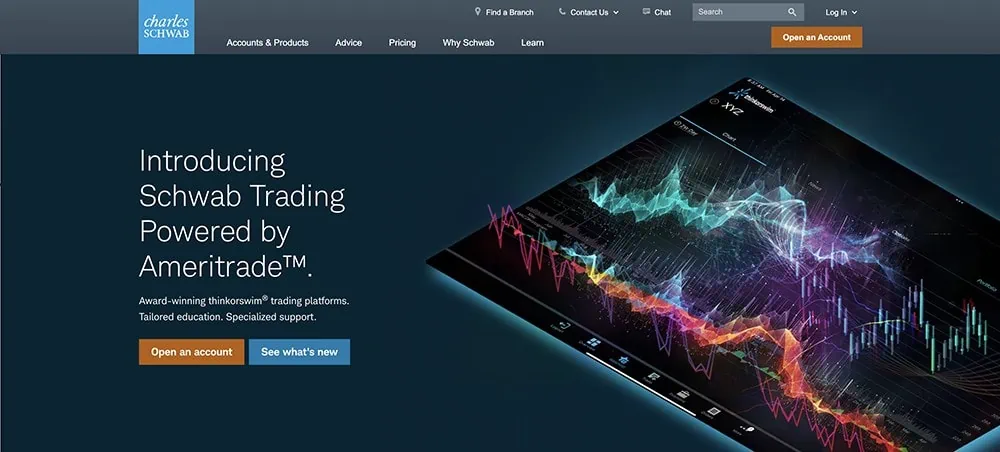
- Available: Sign up here
- Best for: Intermediate investors
- Platforms: Web, mobile app (Apple iOS, Android)
Investors looking for maximum flexibility and low (or no) trading costs should explore a brokerage or retirement account with Schwab.
Schwab offers commission-free stocks, ETFs, thousands of mutual funds (from Schwab Mutual Fund OneSource), and even Treasury trades. Additional investment selections include corporate bonds, options, money market funds, futures, E-mini futures, and foreign exchange (forex), and you can even participate in some initial public offerings (IPOs) through the Schwab platform.
Want to learn more? Check out the review here, and from there, click the “Visit Site” button to visit Schwab and sign up.
- Charles Schwab is one of the best online and mobile trading platforms among discount brokers, offering a full range of investments (including professionally managed accounts). It allows you to invest in stocks, ETFs, mutual funds, options, bonds, futures, micro futures, and futures options.
- $0 commission trading for online U.S.-listed stocks, ETFs, options, mutual funds, and Treasuries. (Options do have a 65¢ contract fee.)
- More experienced traders can find plenty of horsepower in the Thinkorswim platform, which provides advanced charting, screening, complex options trades, access to a trading community, and more.
- Learn with Schwab, too. Schwab offers a wide variety of educational resources and stock news. The accounts offer regular market commentary, tax planning and retirement advice, stock and fund screeners, Schwab courses ranging from “Income Investing” to “Directional Options: Single Options and Spreads," and even access to Onward—Schwab’s quarterly financial magazine.
- Opening a Schwab account is easy and only takes a couple of minutes.
- Excellent selection of available investments
- Commission-free mutual funds and Treasuries
- Schwab Intelligent Portfolios (robo-advisory)
- Thinkorswim platform (absorbed from TD)
- Fractional shares
- No direct cryptocurrency trading
Related: 17 Best Stock Research & Analysis Apps, Tools and Sites
9. Public.com (Stock Investing App With Alternative Assets)
- Available: Sign up here
- Best for: New investors with limited capital
- Platforms: Web, mobile app (Apple iOS, Android)
Public.com is a commission-free investing app, geared toward Millennials and Gen-Zers, that as of late has built up the types of assets available to its users. On Public, users can invest in not just individual stocks and ETFs, but also more than 25 different cryptocurrencies—and more recently, alternative assets from art to sneakers.
That last point is worth a callout. Alternative assets are a relative rarity among investing apps. They can be difficult to research (and thus difficult to properly invest in), but they can provide uncorrelated returns compared to the stock and bond markets, so many savvy investors like to diversify into these assets.
But while the number of tradable assets on Public.com is growing, it’s still somewhat limited: It doesn’t offer mutual funds, options, bonds, or futures. New users are also limited to individual brokerage accounts—retirement accounts aren’t currently available.
The “Public” part of the name nods at the platform’s social aspect. For one, you can make your portfolio holdings open to other users, and conversely, you can look through other Public users’ portfolios. Investors can also connect with corporate founders and CEOs through live “Town Hall” meetings.
Public also acts as a micro-investing app, allowing you to invest in fractional shares with as little as $1.
Users can upgrade their experience with the $10/month Public Premium subscription.
Public Premium offers some features that are included in some free brokers’ services, but other features help to justify the cost. For instance, Premium offers extended-hours trading (8 to 9:30 a.m., and 4 to 8 p.m. EST) and stock price alerts—several competitors, such as TradeStation and E*Trade, offer these services at no charge. However, Premium also provides:
- Advanced data on companies—Public.com’s examples include Tesla quarterly deliveries by model or Apple’s annual sales by continent
- Institutional-grade research provided by Morningstar
- Members-only analysis about events including major economic report releases, earnings announcements, and more
- Exclusive audio programming by Public.com’s expert analysts
If you’re interested, you can sign up today and receive a free “slice of stock.” Or, if you’re transferring funds from a different brokerage account, Public.com will provide you with a cash bonus. While Public says it will pay out up to $10,000, that’s on an account transfer of $5 million plus. More common payouts include $150 for transfers of between $5,000 and $24,999, and $250 for transfers of $25,000-$99,999. (And at the very least, if you transfer at least $500, Public will reimburse you up to $100 per transfer for any fees charged by your original brokerage firm.)
Read more in our Public.com investing app review.
For Public.com disclaimer, please see the fine print at the bottom of this article.
- Public.com offers zero-commission trading on thousands of stocks and ETFs, available as fractional shares. The app also allows you to invest in cryptocurrency, options, and bonds as well, and it's one of the rare brokerages that allows its users to buy alternative assets.
- Lock in a 5.3% yield with Public.com's Bond Account, which allows you to invest in a diversified portfolio of investment-grade and high-yield bonds.
- Use a social feed where members can share why they believe in certain companies (or don't) and can post comments on others' trades.
- Invest in curated lists of stocks and ETFs for people to aggregate investments by interest area or values.
- Subscribe to Public Premium for features such as advanced company-level data, Morningstar insights, and exclusive audio content from Public.com's expert analysts.
- Special offer: Receive an uncapped 1% match on transfers into a Public IRA.
- Fractional shares
- Good selection of investible assets
- Allows you to trade alternative assets
- No payment for order flow (PFOF)
- Creative social investing features
- Doesn't support mutual funds
- Limited investment research and other tools
Related: Best Stock Trading Apps and Platforms for Beginners
Frequently Asked Questions (FAQs) About The Best Brokerage Accounts for Beginners
What Are Fractional Shares (And How Do They Work?)
Typically, if you want to invest in a company, you have to buy at least one share of stock, whatever the price—$1, $10, $100, $463,525 (no really, that was the price of Berkshire A shares as I wrote this article). The same goes with ETFs—if you want to invest in that fund, you have to buy at least one share, whatever the cost.
However, with fractional shares, you can buy as much of a stock or ETF as you want with however much money you have. If you have just $1 to invest, brokerages with fractional shares can make it happen.
But it’s not just for people with little money to invest. Say you want to invest $1,000 in a stock, but it costs $750 per share. Without fractional shares, your choices are to buy one share and then figure out some other way to use the $250, or find another $500 so you can buy two shares. But with fractional shares, you can spend exactly $1,000 on that stock—hence why the process is often referred to as “dollar-based investing.”
How Does a Discount Broker Compare to a Full-Service Broker?
The main differences between a discount broker and a full-service broker boil down to the services offered and what you’re willing to pay.
Full-service brokers provide more value-added services such as financial planning, investing advice, and portfolio updates, but they tend to charge higher fees. Discount brokers are more cost-effective but might not offer the same level of personalized service.
A middle ground has formed in recent years with the introduction of robo-advisors: a type of brokerage service that layers in automated financial advice based on answers you provide to a questionnaire. These services help people manage their investments by using algorithms and other technology to create individualized portfolios, taking into account a user’s risk tolerance, time horizon, and goals. They are relatively low cost, often charging lower fees than traditional financial advisors—making them an excellent feature among stock brokers for beginners.
Robo-advisors can also provide additional services such as financial planning tools, tax-loss harvesting, and automatic portfolio rebalancing. However, to access a human advisor, you would likely have to pay an additional cost or seek one outside of the robo-advisor platform.
Related:
- Best Investing Apps for Teens
- Best Debit Cards for Kids to Handle Money
- Stock Market for Teens: Teen Investing
- 7 Best Stock Portfolio Management Software Tools + Apps
Public.com Disclaimer
This does not constitute investment advice. Investing involves the risk of loss, including the potential loss of principal. Brokerage services for US-listed, registered securities available on Public are offered by Open to the Public Investing, Inc. (OTTP), a member of FINRA & SIPC, and a wholly-owned subsidiary of Public Holdings, Inc. Brokerage services for alternative investments are offered by the Dalmore Group, LLC, a member of FINRA & SIPC. Alternative investments are over-the-counter equity securities that have been issued pursuant to Regulation A of the Securities Act of 1933. Cryptocurrency trading is provided by Apex Crypto LLC (NMLS ID 1828849). Apex Crypto is licensed to engage in the virtual currency business by the New York State Department of Financial Services. New customers of OTTP receive free stock valued between $3 – $1,000 (0.3% receive the maximum value).





